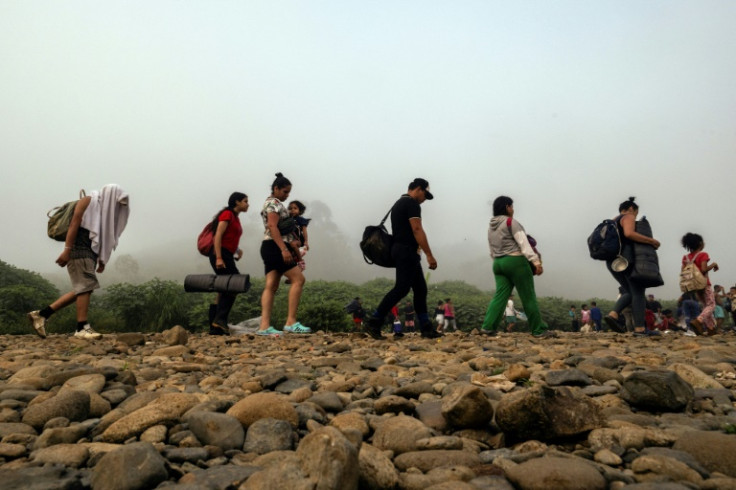
Amid increased pressure from the U.S. to prevent migrants from reaching its southern border, but lacking the funds to deport them, Mexican authorities are employing a simple but harsh tactic: wearing migrants out until they give up.
Border Report described the experience of Yeneska Garcia, a Venezuelan migrant. The 23-year-old crossed the Darien Gap jungle dividing Colombia and Panama, narrowly survived being kidnapped by a Mexican cartel only to wait months for an asylum appointment with the United States that never came.
When she eventually crossed the U.S.-Mexico border in May, American authorities expelled her. She was then sent back to southern Mexico after immigration authorities bused her to Villahermosa and dropped her on the street.
"I would rather cross the Darien Gap 10,000 times than cross Mexico," Garcia said, sitting in a migrant shelter.
Just like Garcia, hundreds of migrants are rounded up by Mexican authorities and sent to cities like Villahermosa and Tapachula.
"We care a lot... about keeping migrants in the southeast because crossing to the north is very risky," Mexican President Andres Manuel Lopez Obrador said, responding to a question from The Associated Press during his daily briefing.
Since these tactics were employed, arrivals to the U.S.-Mexico border have dropped 40% from their all-time high in December, and figures have continued decreasing trough the spring.
Migrants in Villahermosa walk or take buses north toward Mexico City, where they can request an appointment to seek asylum in the U.S. Customs and Border Protection's app, CBP One. But most never make it far enough north to fulfill the app's location requirement.
Throughout this journey, checkpoints are located all over Mexican highways, with armed soldiers pulling migrants off buses and round up those walking along roads and in surrounding mountains. Two dozen migrants from these groups were interviewed by the AP, all saying they were extorted by law enforcement or Mexican migration officials to continue on their journeys.
Mexico's tactics appear to be a way to appease the U.S., which has pressured Latin American nations to help slow migration while failing to overhaul its own immigration system. For instance, Panama's incoming president has promised to block passage through the Darien Gap, while Biden eased criticisms of El Salvador's president after he reduced migration.
But Michael Shifter, a senior fellow at the Inter-American Dialogue, said such measures are only a short-term solution that don't address root causes of migration.
"They say this is a regional challenge we all have to face together, which is true," Shifter said. "The problem is: if the U.S. can't get its own house in order, that sends a signal to other governments asking: 'Why should we work with them if the U.S. itself is not capable of dealing with the issue?'"
© 2024 Latin Times. All rights reserved. Do not reproduce without permission.







